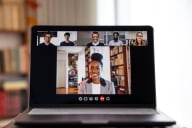You have /5 articles left.
Sign up for a free account or log in.
Age of Discovery: Navigating the Risks and Rewards of Our New Renaissance by Ian Goldin and Chris Kutarna
Published in May of 2016.
Would you rather be your age today (in 2016), navigating the gig economy and fraying social contract between employers and employees, or would you instead choose to be your same age in 1966?
The world of 1966 to 1973 was not a world of contingent labor, outsourcing, and stagnant wages. The post-World War II world was still one of job security and rising wages. Who wouldn’t choose the life of 5 decades past if given the choice.
The reality is that few of us would make that trade-off.
This, at least, is the argument of the edifying and thoroughly entertaining book Age of Discovery. Goldin and Kutarna argue (page 155):
“...while we value income security and wealth accumulation, we also value health. We value freedom, autonomy, participation, connection, influence...We have a hard time quantifying these things, but they are real and important. Would the next generation give up their extraordinary gains along all these dimensions in exchange for their parents’ job?"
I’ve become convinced that we are doing college students a disservice when we fail to instill a sense of optimism about the future.
There is a great deal of mental energy expended on campus around the coming jobless future driven by the Uberification of everything.
Future graduates listening to us yackers would be forgiven for thinking that they were in for a lifetime of basement dwelling (our basements), unpaid temp work, and craft beer. (Well, maybe a future of craft beer is accurate).
The problem with our future pessimism is that it is ahistorical.
We take today’s very real struggles (stagnant wages, political dysfunction, eroding public support for public postsecondary education, adjunctification -pick your poison) - mix in some worries about declining productivity and robots - and conclude that the future is grim.
The reality, at least if you are convinced by reading Age of Discovery, is that we are on the cusp of a New Renaissance.
The conditions are right in the 21st century for big non-incremental advances in culture, society and well-being. (Hello - the internet. Smartphones. Abundant information. Marriage equality. Urbanization. Open online education. And a billion people moving out of poverty since 2000. Little things like that.)
When we think of advances of the Renaissance, we think of a world that recovered from the Black Death of the 14th century to witness the invention of the printing press and the publishing of The Gutenberg Bible (1453), the creation of Michelangelo’s David (1504) and Leonardo da Vinci's Mona Lisa (1505), and publication of Machiavelli's The Prince.
Or perhaps you would pick as your favorite Renaissance moments the publications of More’s Utopia (1516), Copernicus' Revolutions of the Celestial Orbits (1543), Shakespeare’s Hamlet (1603), or Cervantes' Don Quixote (1605).
What are the conditions that enabled the geniuses mentioned above to discover and create new things that still shape how we understand the world? And is there evidence that these same conditions may exist in today’s world?
The Age of Discovery is a book length answer to these questions.
Goldin and Kutarna dive deeply into the history of The Renaissance to make sense of the conditions that enabled non-linear thinking and non-incremental advances to be made - and then from historical precedent they build the case that similar conditions are in play today.
Could it be that if we want to get today’s college students excited about the future that we should push more of them to become history majors?
Do you think that the more time that you study history the more optimistic that you will be about the future?
Can you make a case that we are living through a New Renaissance? (Or maybe you think that this idea is too wrong-headed even to engage).
How in the world can we get college students to pick up this book? (The book is Whispersync enabled - e-book and audiobook synced up - so maybe the time crunched and impatient will give it a go).
What are your favorite books that make arguments about the future by building the case based on long-term trends and historical events?
Can you share some big think history / future books that you love?
What are you reading?








